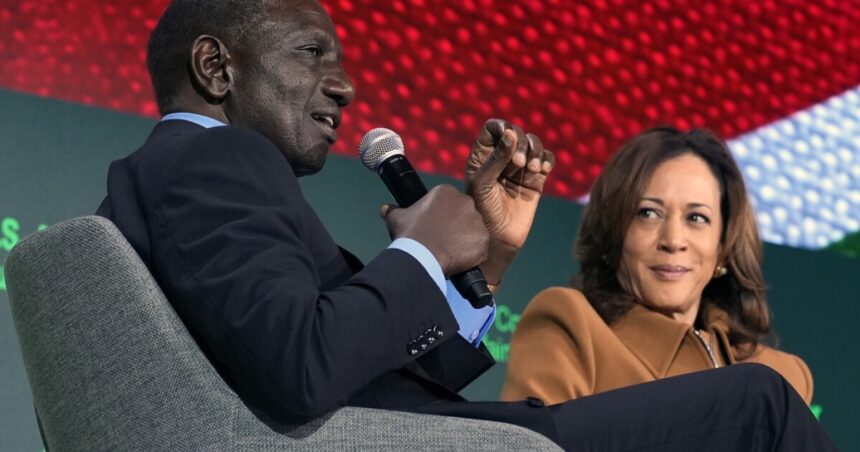Vice President Kamala Harris announced a partnership on Friday to increase internet access in Africa by 40%, aiming to bring connectivity to 80% of the country.
This initiative expands upon a commitment Harris made during her visit to the continent last year, focusing on accelerating innovation and entrepreneurship in Africa. She called on business and philanthropic leaders to invest in the Digital Transformation with Africa initiative launched by President Joe Biden in December 2022.
As part of Friday’s announcement, Harris revealed the establishment of the non-profit Partnership for Digital Access in Africa. Through this partnership, Harris pledged to connect 1 billion people in Africa to the Internet by 2030 and increase connectivity for women and girls by 50%. The non-profit will also work on reducing device costs and enhancing digital skills for Africans through a collaboration with a bureau within the U.S. Department of Commerce.
In addition, Harris disclosed a partnership between the African Development Bank Group and Mastercard known as the Mobilizing Access to the Digital Economy Alliance. This partnership will concentrate on the agricultural sector, offering $300 million to build a digital infrastructure for 3 million farmers in three African countries initially before expanding to other regions.
Furthermore, the vice president announced further funding for the Women in the Digital Economy Fund, which has already garnered over $1 billion in public and private commitments since its introduction in 2023.
During a joint appearance with Kenyan President William Ruto at the U.S. Chamber of Commerce on Friday, Harris emphasized the importance of uplifting women in the digital space through these initiatives.
Politics
Biden wants Kenya to become a major non-NATO US ally
6:31 PM, May 23, 2024
“If we are focused on strengthening economies, one of the smartest ways to do that is to invest in women,” Harris remarked. “When you enhance the economic status of women, you ultimately improve the economic well-being of families, communities, and society as a whole. Therefore, much of the initial design of these initiatives was structured with this perspective in mind.”
Both Harris and Ruto highlighted that supporting African innovation will enhance the world’s future, with Harris pointing out that by 2050, 1 in 4 people globally will be from Africa.
“Thinking about it from that standpoint, one could argue that the future lies on the continent of Africa,” she said. “It’s not about aid but about investments, recognizing the strong capacity that exists in Africa, which makes it a worthwhile investment with significant returns.”





